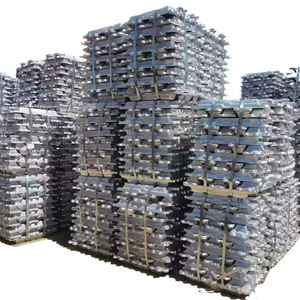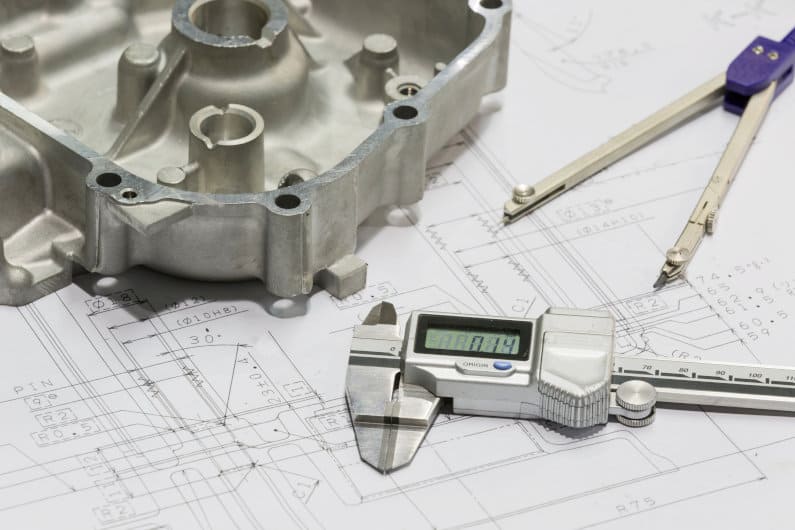More About Alcast Company
Table of ContentsAll About Alcast CompanyNot known Details About Alcast Company 5 Simple Techniques For Alcast CompanyAlcast Company - The FactsAlcast Company Things To Know Before You Get ThisThe Ultimate Guide To Alcast Company
Chemical Comparison of Cast Aluminum Alloys Silicon promotes castability by minimizing the alloy's melting temperature and improving fluidness throughout casting. Furthermore, silicon contributes to the alloy's stamina and wear resistance, making it useful in applications where resilience is essential, such as automobile parts and engine elements.It additionally improves the machinability of the alloy, making it much easier to process right into completed items. This way, iron contributes to the total workability of aluminum alloys. Copper boosts electrical conductivity, making it beneficial in electrical applications. It additionally enhances corrosion resistance and contributes to the alloy's general toughness.
Manganese adds to the toughness of light weight aluminum alloys and boosts workability. Magnesium is a light-weight aspect that offers toughness and influence resistance to aluminum alloys.
All About Alcast Company
It enables the production of light-weight elements with exceptional mechanical buildings. Zinc boosts the castability of light weight aluminum alloys and helps regulate the solidification process during casting. It boosts the alloy's strength and solidity. It is frequently located in applications where intricate shapes and great details are essential, such as attractive castings and specific auto components.

The primary thermal conductivity, tensile toughness, yield strength, and elongation vary. Among the above alloys, A356 has the highest thermal conductivity, and A380 and ADC12 have the cheapest.
Some Ideas on Alcast Company You Need To Know

In accuracy spreading, 6063 is well-suited for applications where detailed geometries and high-quality surface area coatings are extremely important. Instances include telecommunication enclosures, where the alloy's exceptional formability permits for sleek and aesthetically pleasing styles while keeping structural integrity. In the Lights Solutions industry, precision-cast 6063 elements create classy and efficient lights fixtures that require complex shapes and great thermal performance.
The A360 displays superior prolongation, making it optimal for complicated and thin-walled elements. In precision casting applications, A360 is appropriate for markets such as Customer Electronic Devices, Telecommunication, and Power Devices.
How Alcast Company can Save You Time, Stress, and Money.
Its unique properties make A360 a valuable choice for accuracy casting in these markets, enhancing item sturdiness and top quality. Aluminum alloy 380, or A380, is an extensively made use of spreading alloy with numerous distinctive features. It offers outstanding castability, making it an excellent selection for accuracy casting. A380 displays good fluidness when molten, ensuring intricate and comprehensive molds are properly replicated.
In precision spreading, aluminum 413 shines in the Customer Electronics and Power Tools industries. This alloy's premium deterioration resistance makes it an excellent option for exterior applications, making sure durable, durable products in the discussed industries.
Our Alcast Company PDFs
The light weight aluminum alloy you pick will significantly impact both the spreading procedure and the properties of the last item. Due to the fact check my source that of this, you have to make your decision very carefully and take an informed method.
Identifying the most suitable light weight aluminum alloy for your application will indicate evaluating a wide variety of characteristics. The initial group addresses alloy attributes that impact the production procedure.
The 2-Minute Rule for Alcast Company
The alloy you select for die spreading straight influences several elements of the casting process, like just how very easy the alloy is to work with and if it is susceptible to casting issues. Hot fracturing, additionally called solidification cracking, is a typical die spreading defect for aluminum alloys that can cause internal or surface-level rips or splits.
Certain aluminum alloys are a lot more at risk to warm fracturing than others, and your selection needs to consider this. An additional usual issue discovered in the die spreading of aluminum is die soldering, which is when the actors adheres to the die wall surfaces and makes ejection challenging. It can harm both the actors and the die, so you ought to try to find alloys with high anti-soldering buildings.
Deterioration resistance, which is already a noteworthy feature of aluminum, can differ substantially from alloy to alloy and is an essential characteristic to take into consideration relying on the environmental conditions your item will be subjected to (Foundry). Wear resistance is an additional property frequently looked for in light weight aluminum products and can distinguish some alloys